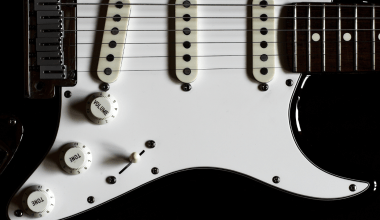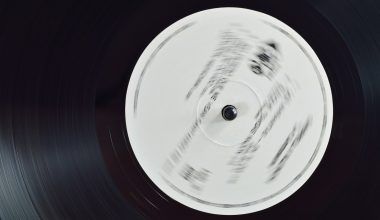Choosing a stage name is one of the most exciting steps in building your musical career. Whether you’re a budding artist or a seasoned performer rebranding your image, a unique and memorable stage name can set the tone for your career. A singer name generator can be a fantastic tool to help spark ideas and guide you toward your perfect moniker.
In this guide, we’ll explore everything you need to know about finding your ideal stage name. From why a stage name matters to practical tips for creating one, we’ve got you covered. By the end, you’ll not only understand how to use a singer name generator but also how to customize the results to reflect your personality and music style.
Why Do Singers Use Stage Names?
Stage names have been a tradition in the music industry for decades. They serve as a way to create a distinct identity, protect privacy, or simply make a name easier to remember. Imagine trying to recall a long, complicated name versus something catchy and straightforward like Lady Gaga or Prince.
Stage names also allow singers to:
- Express creativity: Your name is part of your brand. A unique stage name gives you the chance to reflect your artistic vision.
- Connect with your audience: A well-chosen name can evoke emotions, memories, or curiosity, drawing listeners in.
- Stand out: In a crowded industry, a memorable name makes it easier for fans and industry professionals to remember you.
What is a Singer Name Generator?
A singer name generator is a digital tool designed to help artists come up with creative and unique stage names. By entering specific details such as your real name, musical genre, or personal preferences, the generator produces a list of potential names that suit your style.
The beauty of using a singer name generator is that it’s simple, fast, and can spark inspiration even if you don’t settle on one of the suggested names. You can tweak the suggestions to make them truly your own.
How Does a Singer Name Generator Work?
Most name generators use algorithms to combine keywords, syllables, and popular naming conventions to create options tailored to your inputs. Some tools even allow you to specify:
- Your music genre
- A favorite word or phrase
- Your desired vibe (e.g., edgy, elegant, fun)
Let’s take a closer look at how you can use these tools effectively.
Tips for Using a Singer Name Generator
While a singer name generator is a powerful starting point, there are a few ways to maximize its potential:
- Know Your Style: Before you start, think about your music’s vibe. Are you a pop singer? A jazz artist? Knowing your genre helps narrow down names that fit.
- Experiment with Keywords: Enter different words that resonate with you, like a hobby, meaningful place, or adjective that describes your sound.
- Keep It Short and Sweet: Names that are easy to spell and pronounce are more likely to stick in people’s minds.
- Test It Out: Say the names aloud. Imagine them announced on stage or printed on an album cover. Do they feel right?
- Get Feedback: Share your top picks with trusted friends or fans and gauge their reactions.
Popular Singer Stage Names and Their Origins
To inspire you further, let’s look at some famous stage names and how they came to be:
- Elton John: Derived from the names of two bandmates, Elton Dean and Long John Baldry.
- Lady Gaga: Inspired by the Queen song “Radio Ga Ga.”
- Sia: Shortened from her full name, Sia Kate Isobelle Furler.
- The Weeknd: A nod to a weekend trip where Abel Tesfaye decided not to return home.
Each of these names has a story behind it, making them not just memorable but deeply personal.
Creative Ways to Generate a Stage Name
If a singer name generator doesn’t quite hit the mark, don’t worry. There are plenty of other creative ways to come up with a unique stage name:
1. Play with Anagrams
Rearrange the letters of your real name to create something new. For instance, “Sam Smith” could become “Amiss Htms.”
2. Mix Languages
Incorporate words from other languages that resonate with your identity or music style.
3. Use Nicknames
Think back to childhood nicknames or terms of endearment that hold special meaning.
4. Combine Words
Merge two unrelated words that describe your personality or music. For example, “Nightbird” or “EchoSky.”
5. Borrow from Nature
Nature-inspired names like “Willow,” “Ocean,” or “Phoenix” are timeless and evocative.
What Makes a Great Stage Name?
A great stage name is:
- Unique: Avoid names that are too similar to existing artists.
- Memorable: Simple, catchy names stick better in people’s minds.
- Authentic: Your name should feel like an extension of yourself.
- Relevant: Ensure it aligns with your music genre and audience.
Common Mistakes to Avoid When Choosing a Stage Name
- Overcomplicating It: Long or hard-to-spell names can be difficult for fans to remember or search for online.
- Ignoring Your Audience: Consider what would appeal to your target listeners.
- Skipping the Research: Make sure the name isn’t already taken by another artist.
- Forgetting About SEO: A name that’s too generic might make it harder for fans to find you online.
Final Thoughts on Using a Singer Name Generator
A singer name generator is just one piece of the puzzle in crafting your musical identity. While it’s a fantastic starting point, the real magic lies in personalizing the suggestions and ensuring they align with your music and values. Remember, your stage name is more than just a label; it’s a gateway to your art and a crucial part of your brand.
Related Articles:
For further reading, explore these related articles:
- Understanding “I Don’t Own the Rights to This Music” and Why It Matters
- The Best Software for Musicians: A Comprehensive Guide
For additional resources on music marketing and distribution, visit DMT Records Private Limited.






